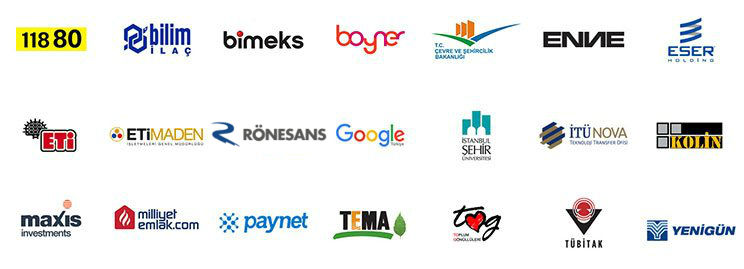
Modern purchasing departments are no longer units that merely reduce costs, but are turning into value creation engines that play a central role in helping companies achieve their strategic goals.
At the heart of this transformation lies the nature of the relationship between buyers and their suppliers.
Traditionally, this relationship was often transactional and sometimes adversarial.
However, in today's world, where market dynamics are changing rapidly and supply chains are becoming more complex and fragile than ever, this old approach is no longer sufficient.
Real competitive advantage comes from viewing suppliers as an extension of the business, as a "strategic partner" rather than merely as "vendors".
This article will delve deeper into why this mindset shift is imperative and how a proactive supplier can add invaluable value to buyers.
The Transaction Trap: The Value Purchasing Misses
Many purchasing organizations unknowingly fall into the “transaction trap.”
This trap reduces supplier relationships to merely transactional activities such as price negotiations, ordering, delivery tracking, and invoice payment.
The entire focus is on achieving the lowest price per unit.
While this approach may appear to provide some cost benefits in the short term, it misses out on huge opportunities in the long run.
Suppliers have deep knowledge, market insights and innovation potential in their areas of expertise.
When the relationship is based solely on price, this valuable intellectual capital is left at the door.
When buyers view their suppliers as mere order takers, they squander their potential as problem solvers, cost optimizers, and innovation partners.
This narrow perspective also makes the supply chain extremely fragile.
Opportunity Cost: The True Cost of Poor Supplier Relationships
The cost of having a purely transactional relationship with suppliers is the cost of missed opportunities, and this is often not directly visible on the balance sheet.
These weak ties leave businesses more vulnerable to market volatility, slow the pace of innovation and increase hidden costs.
Research on the subject clearly reveals the concrete benefits of strategic supplier collaboration.
For example, leading consulting firm McKinsey highlights that companies that improve supplier collaboration and relationships achieve higher growth rates and better profitability than competitors that do not.
Companies that form strategic partnerships can bring new products to market faster, manage supply chain disruptions more effectively, and achieve significant improvements in total cost of ownership (TCO).
This data shows that companies that do not collaborate with their suppliers not only miss out on potential gains, but also face greater risks in times of crisis.
Staying in the transaction trap means consciously choosing to stay behind the competition.
Creating Value: How Suppliers Can Actively Help Buyers
The transformation of a supplier into a strategic partner begins with the purchaser creating an environment that enables this collaboration.
When a relationship is built on trust, transparency and shared goals, suppliers can add invaluable value in a number of proactive ways.
1. By Optimizing Costs Beyond Price
A good supplier helps buyers go beyond simply lowering unit price.
They create value by analyzing the total cost of ownership (TCO).
For example, they may recommend a slightly more expensive but more durable component, which can significantly reduce maintenance and replacement costs in the long run.
By analyzing your production processes, we can recommend more efficient packaging or logistics methods, which can reduce your transportation and storage costs.
This type of assistance enables the purchaser to manage costs from a holistic perspective.
2. By Contributing to Innovation and Product Development
Your suppliers are at the forefront of technology and market trends in their fields.
Involving them in the early stages of product development creates a powerful advantage known as “supplier innovation.”
They can tell you about a new material, a lighter component, or a more efficient manufacturing technology.
This type of input can help differentiate your products in the market, improve performance and reduce production costs.
A strategic supplier not only provides what you want, but also anticipates what you might need.
3. By Strengthening Risk Management
Today's global supply chains face numerous risks, including geopolitical tensions, natural disasters, and market volatility.
A strong and transparent relationship with your suppliers is your best early warning system.
A strategic partner can warn you in advance about a potential bottleneck in their supply chain, a rise in raw material prices, or a potential capacity issue.
This proactive flow of information gives buyers vital time to develop alternative plans, adjust stock levels or engage alternative sources.
4. By Providing Market Intelligence and Insights
While buyers manage many different categories, suppliers often specialize deeply in a single area.
This expertise is a valuable source of market intelligence for buyers.
A good supplier can provide you with insights into competitor activities, emerging regulations, technological advances and consumer trends.
This information will help you build a more solid foundation for your purchasing strategies and make more accurate decisions.
5. By Increasing Process Efficiency
A collaborative relationship can significantly streamline purchasing and supply chain processes.
For example, through programs like Supplier Managed Inventory (VMI), your supplier can monitor and automatically replenish stock levels on your behalf.
This reduces your inventory costs and eliminates the risk of stockouts.
Additionally, integration through common planning and digital platforms automates ordering and invoicing processes, reducing administrative burden and increasing efficiency.
Mistakes That Block Collaboration: What Buyers Should Avoid
Unlocking the potential of suppliers to proactively help depends largely on the attitude of buyers.
One of the most common mistakes is to treat all suppliers the same.
Having a purely transactional relationship with everyone, rather than identifying and building deeper relationships with suppliers that are strategic to your business, limits potential.
Another big mistake is not being transparent in sharing information.
If you don't share your long-term demand forecasts, production plans, or strategic goals with your supplier, you can't expect them to be proactive.
Lack of effective communication and only contacting the supplier when problems arise also damages the relationship.
Regular performance review meetings and strategic discussions are the foundation for building trust and collaboration.
Supplier Relationships of the Future: Digitalization and Sustainability
Supplier relationship management is evolving with technology and global priorities.
Digitalization is one of the biggest driving forces in this field.
Supplier portals, common data platforms and advanced analytics tools offer unprecedented transparency and real-time collaboration between buyers and suppliers.
However, the most important area of cooperation in the future will be sustainability.
Companies must work in partnership with their suppliers to achieve their environmental, social and governance (ESG) goals.
Strategic partnerships with suppliers on issues such as reducing carbon footprint, ensuring ethical sourcing and implementing circular economy principles will be vital for both the planet and brand reputation.
Conclusion: Redefining Relationships for Shared Success
The answer to the question, “How can suppliers help buyers?” begins with the question, “How can buyers enable suppliers to help?”
A modern and successful purchasing department sees its suppliers as a value creation partner, not as a cost item.
Shifting from a price-focused approach to a relationship model based on total value, innovation, risk management and shared growth is no longer a luxury but a necessity to remain competitive.
When you open the door to strategic collaboration with your supplier, you gain not just a product or service, but an invaluable partner who will drive your business forward.







